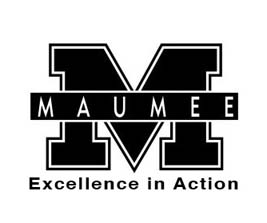Is Ohio school district using public money to campaign?

By Maggie Thurber | For Ohio Watchdog
CAUGHT: Maumee City Schools in Lucas County used public resources to advertise an upcoming levy campaign fundraiser.
Brad Reynolds received a text message Oct. 24 from Maumee City Schools:
“Spaghetti Dinner fundraiser tonight at Maumee High School. 5 – 6:30. $6 adults. $4 seniors/students. Students performing throughout”
The text came from the SchoolMessenger alert system — the one that’s supposed to be used to notify parents of an emergency or about weather delays.
But Reynolds has a problem.
Ohio schools are prohibited from using public resources to promote a campaign issue.
Reynolds said he and his wife signed up for alerts from the school, primarily so they would know about school delays due to weather. He said they’ve also received information about various school events, such as fundraisers, for the band and functions related to in-school organizations.
“This was the first time for a campaign event,” he said.
Ohio Revised Code 3315.07 says “no board of education shall use public funds to support or oppose the passage of a school levy or bond issue or to compensate any school district employee for time spent on any activity intended to influence the outcome of a school levy or bond issue election.”
Reynolds said he followed media reports of illegal campaigning with public resources, including when Sylvania City Schools sent emails to parents asking them to volunteer for their levy efforts, so he knew the district might be wrong.
Because of those reports, he decided to check out the Maumee Schools Facebook page and found it advertised the campaign event there as well.
ILLEGAL: Maumee City Schools used their official Facebook page to advertise their levy campaign fundraiser. Use of public resources to promote a levy campaign is illegal in Ohio.
As of Monday morning, the post was still on the district’s official page.
Reynolds said sent an email to all board members, and he hoped they would respond before the end of business Monday.
Dear Maumee Board of Education Members,
It has come to the attention of several of us that the Maumee City Schools Administration has taken upon itself to advertise a Spaghetti Dinner as a fund raiser for the Concerned Citizens Group that supports the school levy campaigns.
Our concern is that this is in violation of Ohio Revised Code #3315.07 where it states;
“Except as otherwise provided in division (C)(2) of this section, no board of education shall use public funds to support or oppose passage of a school levy or bond issue or to compensate any school district employee time spent on any activity intended to influence the outcome of a school levy or bond issue election.” http://codes.ohio.gov/orc/3315.07
Prior to this event the City Schools did through their Face Book Page, and used the SchoolMessenger system to, advertise the event to registered parents and to the public.
“I hope they will find out how it got out and make sure it doesn’t happen again,” he said.
But he’s not optimistic, especially after no one in the neighboring Sylvania district faced discipline for their dubious use of public resources.
“I’m expecting platitudes,” he said. “The school board has its own agenda. I approached them a while ago about doing a performance audit before they ask for more money. I was told ‘we do our own books and don’t think we need a performance audit.’”
Reynolds said some may see the possible violation as no big deal, but he thinks it’s important.
“I hold my school board to higher standards,” he said. “If they’re so concerned about the children, they should set the example and follow the laws. If they’re going to ask for more tax money, they need to do so legally and raise the money properly.”
Reynolds said he holds himself to high standards at his company and with his work on various community organizations.
He said he intends to file a complaint with the Ohio Elections Commission.
Board member Bob Righi said he would “defer to the Board President and Superintendent on this matter.”
The other school board members did not respond to requests for comment.







